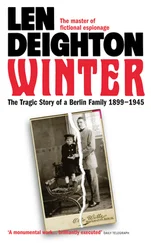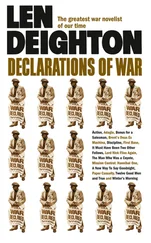Some years ago, on visiting the Vienna office of famed Nazi hunter Simon Wiesenthal, I was intrigued by the assortment of names on the building’s bell-push directory. Each button would lead to a separate encounter, a different life story. My photograph of this now serves as a further ominous device for this trilogy.
Readers will note that Bernard’s name appears in the third panel; is Bernard the “third man” in the story, an unreliable narrator who is more implicated in the shady doings and subterfuge than he has let on? Perhaps the third position equates to the third part of the third trilogy; after all, at crux of the whole series stands Bernard. Or perhaps it best suited the design. I shall leave it to you to decide.
Inspiration comes from the most unexpected places. This time it was from listening to a line from the lyrics of “These Foolish Things”, written Eric Maschwitz, a former colleague from my days in television (and no stranger to spy-craft himself): “A cigarette that bears a lipstick’s traces…” This brought to mind the idea of a lipstick-tipped East German cigarette overhanging an ashtray containing a cigarette lighter displaying the ever-present KGB badge.
At the heart of every one of the nine books in this triple trilogy is Bernard Samson, so I wanted to come up with a neat way of visually linking them all. When the reader has collected all nine books and displays them together in sequential order, the books’ spines will spell out Samson’s name in the form of a blackmail note made up of airline baggage tags. The tags were drawn from my personal collection, and perhaps Bernard’s too, and are colourful testimony to thousands of air miles spent travelling the world.
Arnold Schwartzman OBE RDI

This novel is entirely a work of fiction. The names, characters and incidents portrayed in it are the work of the author’s imagination. Any resemblance to actual persons, living or dead, events or localities is entirely coincidental.
Published by HarperCollinsPublishers Ltd
1 London Bridge Street
London SE1 9GF
www.harpercollins.co.uk
First published in Great Britain by HarperCollinsPublishers 1996
CHARITY. Copyright © Len Deighton 1996.
Introduction copyright © Pluriform Publishing Company BV 2011
Cover designer’s note © Arnold Schwartzman 2011
Len Deighton asserts the moral right to be identified as the author of this work
A catalogue record for this book is available from the British Library
All rights reserved under International and Pan-American Copyright Conventions. By payment of the required fees, you have been granted the nonexclusive, nontransferable right to access and read the text of this ebook on-screen. No part of this text may be reproduced, transmitted, downloaded, decompiled, reverse-engineered, or stored in or introduced into any information storage and retrieval system, in any form or by any means, whether electronic or mechanical, now known or hereinafter invented, without the express written permission of HarperCollins ebooks
HarperCollinsPublishers has made every reasonable effort to ensure that any picture content and written content in this ebook has been included or removed in accordance with the contractual and technological constraints in operation at the time of publication
Source ISBN: 9780007395767
Ebook Edition © JUNE 2011 ISBN: 9780007395804
Version: 2018-09-14
Cover designer’s note
Title Page Len Deighton Charity
Copyright
Introduction
1
A bloated vampire moon drained all life and colour from…
2
‘That bloody man Kohl,’ said Frank Harrington, speaking with uncustomary…
3
When someone asks you to make an objective decision that…
4
‘Now that Bernard has finally joined us,’ proclaimed Dicky Cruyer…
5
I resented being sent to London Debriefing Centre to squeeze…
6
‘Who is it? Bernard? Good! Put your skates on and…
7
Cindy Prettyman had grown older; we all had. The amusing,…
8
Tegel, West Berlin’s third airport, was built in a hurry.
9
It was a strange place to find the grievously sick…
10
The best way to test Prettyman’s story was to go…
11
Even before the First World War, the joke about ‘count…
12
‘This is not going to become an inquest,’ said Bret,…
Keep Reading
About the Author
Other Books by Len Deighton
About the Publisher
If you are obsessed, as I admit to being, it is not always easy to infect others with your devotion. My whole family has proved immune to my feelings about airships, Zeppelinpost, vintage fountain pens and the history of aero engines. So to introduce Charity, the final volume of the Bernard Samson series, I would like to convey to you the reasons behind my obsession with Berlin. I won’t get the same opportunity again, so here is my eye-view of Berlin’s extraordinary past.
My response to Germany and Germans is not that of a casual visitor. In Berlin the battered remains of the fabulous Adlon became my home for some time. Together with my family I lived in Germany and my children attended schools there. Following the extraordinary linguistic talent of my wife, they mastered the German language. Such consummate skills would have been useful to me when I lived in communist East Germany and learned something of the social adroitness required in a country where careless talk can bring infinite suffering. We all saw Germans at their best and at their worst. And the same amazing contrast is to be seen in German history. I do not overlook the millions who died at the orders of the Moscow communists when I say of Germany: how can a nation go from the highest of high achievements and then to the murderous barbarism of the Nazi period, and then produce the repressive inhumanity of the communist regime of which I write in the Bernard Samson stories? I don’t know the answer.
The year 1913 marked the highest time of Germany’s success. On January 27 thEmperor Wilhelm II conveniently celebrated both the centenary of the Battle of Leipzig (at which Germany had played a major part in defeating Napoleon Bonaparte) and his 54 thbirthday. During his 25 years on the throne Germany had undergone an astonishing change. It now had the best railways in the world. It surpassed Britain in iron and steel manufacture and was not far behind Britain in merchant shipping. In applied science, such as chemistry and electricity, Germany led the world. It is true that sophisticated visitors from the glamour of Paris or the wealth of London laughed at Berliners and called them awkward country bumpkins, but Berlin’s population had far more than doubled since Wilhelm II inherited the throne. Manpower, money and growing coal production was expanding the economy, and precision engineering brought wealth and gave the Emperor a formidable army and navy. Germany was fast becoming a superpower to rival Britain. Its lead in aviation was to be seen at the Vienna Air Week in June 1914 when German aircraft won distance, duration and altitude records by large margins. And the Mercedes six-cylinder, water-cooled engine format set the pattern for many years to come.
Kaiser Wilhelm II was a dictator in all but name. Wilhelmine Germany was prosperous but its repression of political discussion and the discouragement of any intellectual exchange ensured that only shallow emotional ideas prevailed in art and literature. Compared to other European cities – such as Vienna and Paris – Berlin was a cultural backwater. Belligerent political misjudgments by Kaiser Wilhelm led to a bloody war on two fronts and to the chaos of Germany’s defeat in 1918. The Kaiser fled to Holland. Germany – now a precarious Republic – saw a series of violent revolutions and counter-revolutions. As the turmoil subsided there was a loosening of cultural restrictions. Extremes of politics, writing, painting, theatre, dance and fashion exploited sensuality. What was at first extreme soon became the general fashion. This shift is often labelled ‘Expressionism’.
Читать дальше













